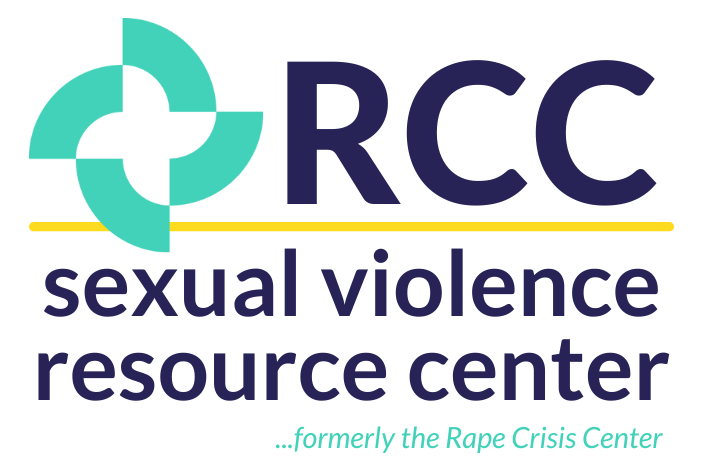Our Approach to Victim Services
All services, programs and community work of RCC are anchored by our core commitment of advocating for those harmed by sexual violence, through centering survivors, promoting societal change and always improving the depth of our work. Critical to this mission is embedding a trauma informed and intersectional lens to our approach to services and engagement in community coordinated efforts.
Trauma Informed.
Trauma informed practices in victim services covers a wide framework of approaches, but generally involves understanding how the resulting trauma from experiences impacts a person’s health, thoughts, feelings, behaviors, communications and relationships. This approach considers how to ensure that the steps to support victims takes a holistic appreciation of the potential effects of trauma, and consequently evaluates and adjusts services to be responsive to those needs.
In Practice.
At RCC, both in the development of our services, as well as the engagement with the community coordinated efforts, this approach means being survivor centered. We work to evaluate our approach to communication, client engagement, advocacy, trainings, imagery, and even our physical spaces to filter through an understanding of how every choice we make is an opportunity to support stabilizing victims who have experienced trauma. This is not a single action, instead we consider this a dynamic practice always evolving to meet the individual needs of those we serve. In the community, this includes advocating to change how different systems engage with survivors, and developing ways they can center the impacts of trauma in their own work.
Intersectional Approach.
Intersectionality emphasizes an understanding of how a person’s societal and political identities combine to create distinct forms of discrimination and privilege. This includes, but is not limited to, identities such as gender, sexuality or race can have overlapping or interacting impacts on how individuals are treated and the outcomes they may experience in any areas of their life.
In Practice.
This understanding becomes an important framework for developing and evaluating our services and community engagement. The existence and pervasiveness sexual violence directly correlates with systems of oppression in our society and the uneven outcomes rooted in social and political identity. When we consider the approach of services, individuals at the table, the resources we offer, and the way we engage with communities, we work to consider the complex needs that emerge in the varying identities of the survivors we serve. This approach calls on us to develop an equity driven practice that accounts for the range of unique challenges each victim faces. It also also requires that in our community work, we are advocating for how we can leverage cross-sector support to meet these challenges and needs.

